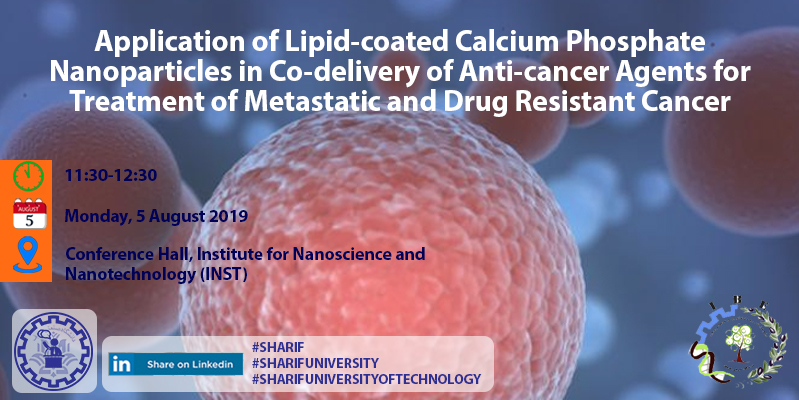
Fatemeh Movahedi
Australian Institute of Bioengineering and Nanotechnology, University of Queensland, Australia
Time: 11:30-12:30
Date: Monday, August 5,2019
Venue: Conference hall, Institute for Nanoscience and Nanotechnology (INST)
Benzimidazole anti-parasite family are recognized as efficacious anti-cancer drugs with minimum side effects. However, their application in cancer therapy is limited due to low aqueous solubility. Loading the drugs into lipid-coated calcium phosphate (LCP) nanoparticles is a promising strategy to overcome this problem due to biocompatibility, biodegradability and pH-sensitivity of LCPs. Also, LCPs provide a platform for co-delivery of other anti-cancer drugs. OTS 964 is a newly discovered anti-cancer agent which can target T-LAK Cell-originated ProteinKinase (TOPK), a signaling pathway for metastasis and a marker of circulating tumor cells. Tiny crystals of albendazole were encapsulate into the calcium phosphate core and OTS 964 in the second lipid layer of LCPs (OTS-ABZ-LCP). OTS-ABZ-LCPs demonstrated superior cytotoxic effect against various cancer cell lines while they were safe to healthy cells. Cancer cells treated with OTS-ABZ-LCP represented significantly less invasion and migration ability which are major markers of metastasis. Overall, LCP nanoparticles offer a promising platform for encapsulating hydrophobic drugs.
